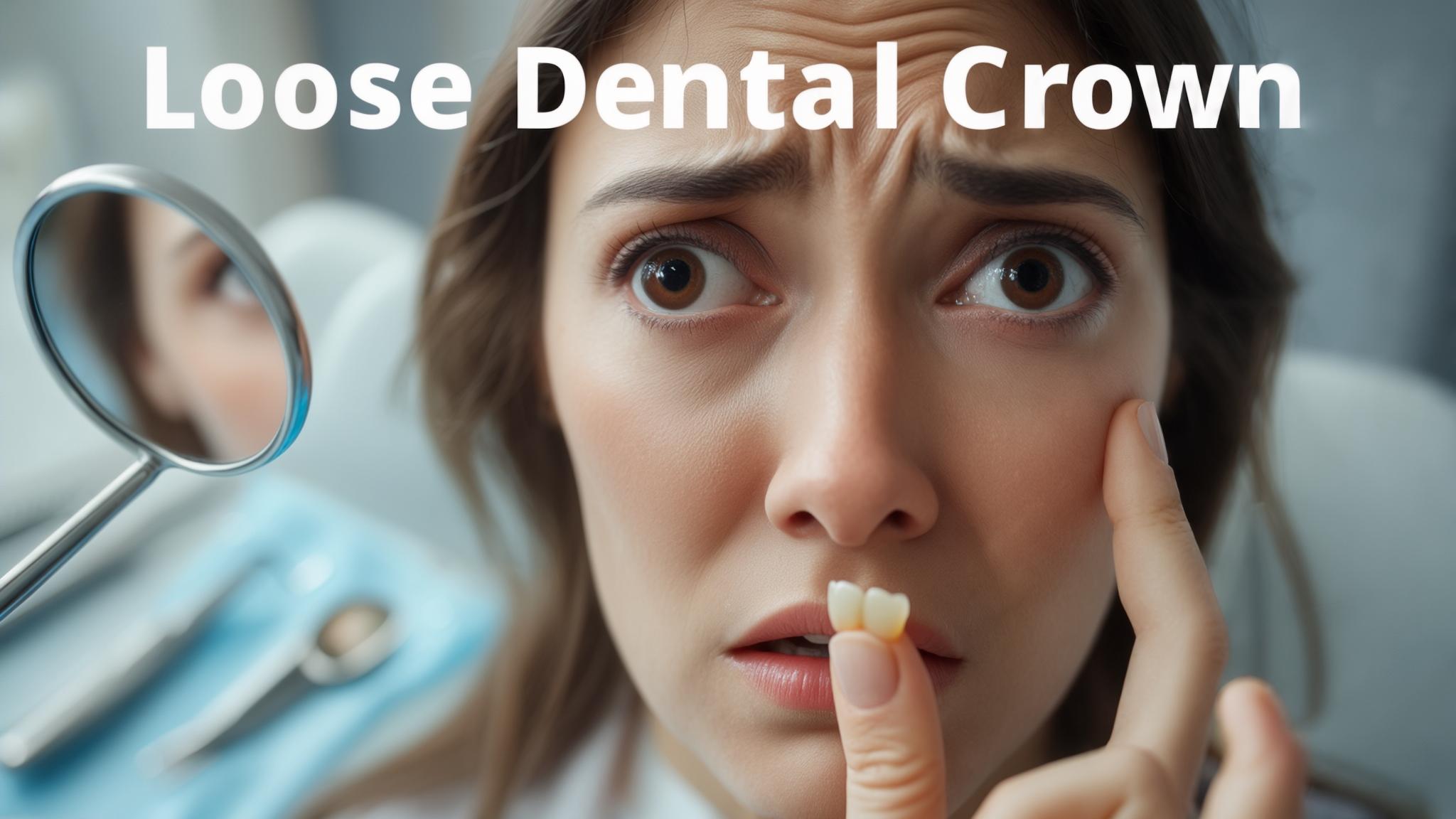Understanding Dental Crowns
Dental crowns are protective caps placed over teeth to restore their shape, size, and function. They are often used when a tooth is significantly damaged or decayed, providing a sturdy and aesthetically pleasing solution. Crowns can be made from various materials, including porcelain, metal, and resin, each offering different benefits. Typically, a well-placed crown can last between 5 to 15 years, depending on factors like oral hygiene, the material used, and the amount of wear and tear it endures.
Signs of a Loose Crown
A loose crown can be unsettling, and recognizing the signs early is crucial. Physically, you might notice the crown feels wobbly or shifts when you touch it with your tongue. Visually, you might see small gaps forming between the crown and the gum line. Accompanying symptoms can include discomfort, pain, or sensitivity, especially when biting down or consuming hot or cold foods.
When is a Loose Crown Considered an Emergency?
Not every loose crown situation is an emergency, but it's essential to assess its urgency. If the crown has completely detached, or you're experiencing severe pain or swelling, it's time to seek immediate dental care. Delaying treatment can lead to further issues such as tooth decay or infection, which can complicate the situation and require more extensive treatment.
Causes of Crown Loosening
Several factors can cause a crown to become loose:
- Poor Fit or Placement: Sometimes, the crown may not fit perfectly from the start, leading to instability.
- Wear and Tear: Over time, the constant pressure from chewing can weaken the cement holding the crown.
- Decay of the Underlying Tooth: If the tooth beneath the crown starts to decay, it can compromise the crown's stability.
- Trauma or Impact: An accidental blow to the mouth can dislodge a crown.
- Oral Hygiene: Neglecting oral hygiene can lead to gum disease, affecting the crown's fit.
What to Do if Your Crown Feels Loose
If you notice your crown feels loose, there are immediate steps you can take:
- Avoid Sticky Foods: These can pull at the crown and worsen its looseness.
- Be Gentle: Avoid chewing on the side of the loose crown.
- Temporary Fixes: Over-the-counter dental adhesives can offer a short-term solution, but they are not a substitute for professional care.
Seeking Professional Help
Contacting your dentist promptly when a crown feels loose is crucial. During your visit, the dentist will examine the crown and the underlying tooth to determine the cause of the looseness. Treatment options may include re-cementing the crown or, in some cases, replacing it if it's damaged or the tooth has decayed significantly.
Prevention Tips for Crown Longevity
To ensure your crown lasts as long as possible, maintain good oral hygiene by brushing twice daily and flossing regularly. Regular dental check-ups are vital to monitor the condition of your crown and overall dental health. Avoid habits like grinding your teeth, which can put additional stress on crowns.
Conclusion
In summary, while a loose dental crown can be concerning, understanding the signs and knowing when to seek help can prevent more severe issues. Addressing a loose crown promptly with the help of a dental professional ensures your oral health remains in top condition. Remember, maintaining good oral hygiene and regular dental visits are key to preventing such emergencies. If you ever find yourself in doubt, don't hesitate to reach out to your dentist for guidance.

